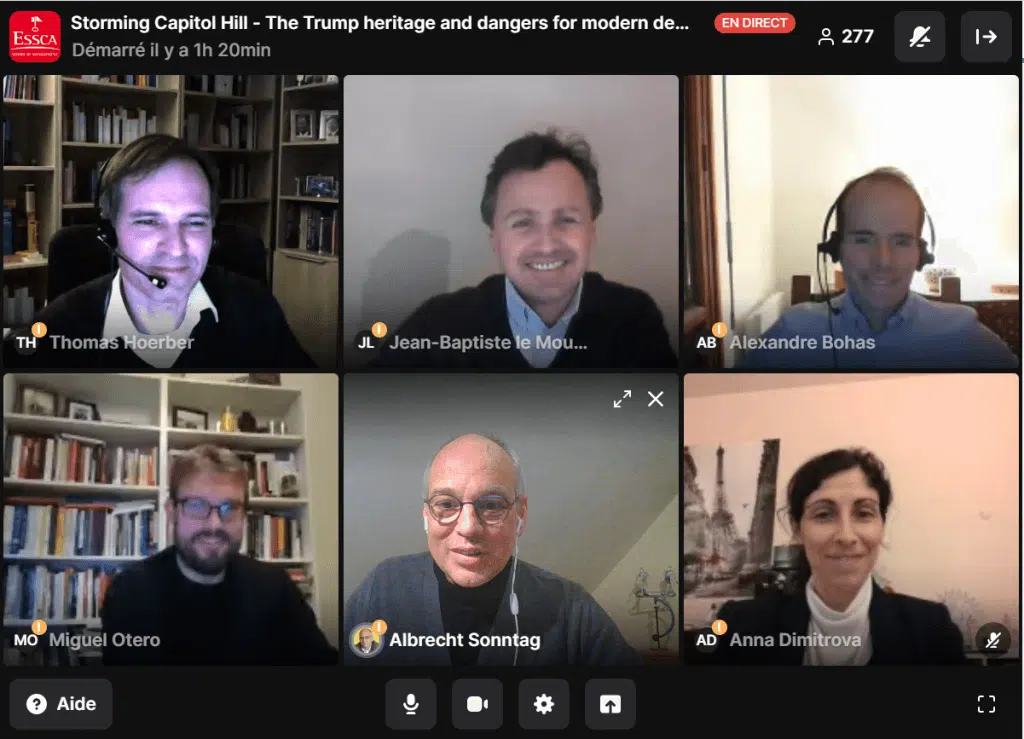“Storming Capitol Hill – The Trump Heritage and Dangers for Modern Democracy”
21 January 2021

At least this may be considered one of the major takeaways from a recent public webinar organised by the EU-Asia Institute on 21 January under the title “Storming Capitol Hill – The Trump Heritage and Dangers for Modern Democracy”. The event, initiated by Thomas Hoerber, brought together six members of the institute, each of whom shared a different perspective on the issue in a dynamic online format.
With over 300 participants, many of whom students in ESSCA’s undergraduate programmes, the webinar was very well attended, and the quality of the questions asked in the chat gave evidence to a keen interest in the potential fall-out of the Trump presidency.
As the first speaker, Anna Dimitrova pointed out, “what will be remembered of this president is that he put US democracy to the test like no one did before.” She insisted on the resilience of the institutions, but also came to the conclusion that contemporary clearly was in need of social media regulation, even if this is a delicate endeavour.
Alexandre Bohas put the Trump years in the larger perspective of long-term developments and tendencies in international relations. He laid particular emphasis on the emergence of phenomena like “fake news” or conspiracy theories, fostered by populist politics.
The other four speakers focused on parallels between specific features of the Trump presidency and other countries and historical periods. Miguel Otero-Iglesias drew comparisons with modern Spanish history (the Franco dictatorship) and contemporary events like the Catalan independence movement, in which even some of the country’s democratic institutions failed partly. Thomas Hoerber referred to the dark years of German history in recalling key moments leading to the failure of the democratic institutions of the Weimar Republic and paving the way for the National-Socialists’ accession to power. While Albrecht Sonntag and Jean-Baptiste Le Moulec established parallels between Trumpist leadership and executive practices and the United Kingdom and Erdogan’sd Turkey, respectively.
In bringing together, for an intense live one-hour exchange, speakers based in Paris, Aix-en-Provence, Madrid and Angers, the webinar, managed by Nahomé Triballier, made good use of the COVID-imposed practices of online conferencing. Judging by the numerous questions, the audience was very sensitive to the crisis that liberal democracy is currently undergoing. As Thomas Hoerber had reminded the audience in his introduction, quoting the newly elected president Joe Biden, “Democracy has prevailed. But democracy is fragile.” A characteristic we’d better be aware of.





